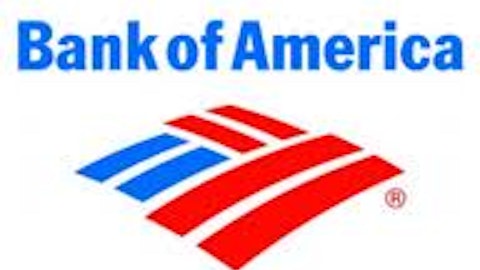Operator
Our next question comes from the line of Gary Tenner with D.A. Davidson. You may proceed.
Gary Tenner, D.A. Davidson
Thanks, good afternoon. A couple of questions. First, just regarding the structured repos, do you have anything else maturing over the course of ’14?
Dunson Cheng, Chairman, President and CEO
Of ’15 …
Gary Tenner, D.A. Davidson
I’m sorry, ’15.
Dunson K. Cheng, Chairman, President and CEO
That’s $50 million matured, and then the rest of the maturities are I believe in 2016 and ’17 and ’18.
Gary Tenner, D.A. Davidson
Okay. And then, Heng, you had just mentioned the recalculation of the loan origination cost. Of the million dollar reduction in salary expense in the fourth quarter that came out of that, how much of that actually flowed through net interest income in the fourth quarter?
Heng W. Chen, EVP, CFO and Treasurer
Not that much because much of that relates to commercial real estate loans. So if they have five-year returns they would amortize that over five years.
Gary Tenner, D.A. Davidson
Okay. So I mean that represents certainly a short-term boost to earnings until it sort of levels out. Is that a fair way to look at it?
Heng W. Chen, EVP, CFO and Treasurer
Yes.
Gary Tenner, D.A. Davidson
Yes.
Heng W. Chen, EVP, CFO and Treasurer
I mean we are just following the — it’s updating of estimate that were required to make every so often under GAAP.
Gary Tenner, D.A. Davidson
Right, and the million dollars was not a catch-up for the full year of 2014, but it was specific to the fourth quarter, correct? So it should impact 2015 by $1 million per quarter?
Heng W. Chen, EVP, CFO and Treasurer
Well, yes, I mean that level of net expense will just continue into 2015 plus regular salary increases.
Gary Tenner, D.A. Davidson
Right, okay. Alright, thanks very much.
Heng W. Chen, EVP, CFO and Treasurer
Yes.
Operator
Our next question comes from the line of Lana Chan with BMO Capital Markets. You may proceed.
Lana Chan, BMO Capital Markets
Thanks, good afternoon.
Heng W. Chen, EVP, CFO and Treasurer
Hi Lana.
Lana Chan, BMO Capital Markets
If you could talk about the recent decline in longer term rates and the flattening of the yield curve, how does that, if any, change your outlook on the margins, specifically with loan yields as well as potentially investing in the securities portfolio?
Heng W. Chen, EVP, CFO and Treasurer
Yes, I guess one over the last 18 months ever since I believe, May of 2013 when the Fed started indicating interest rates which start to rise, for fixed rate loans, the great majority of our borrowers have gone into the rate lock program, where they put up a 1% fee to commit to a 60-day term for a given interest rate, and that’s non-refundable. So we have a large pipeline of loans that were rate locked in December when interest rates were high, and we expect almost all of those to fund at the rate lock rate. And then, the short-term rates, I mean, the interest rates, their swings, I would characterize as relatively violent. So I think our customers if they need to close the escrow or close the purchase, they don’t have a long window to say, “Well, I’m going to wait for the five-year to drop by 25 basis points,” they just go and rate lock. So, I think in terms of fixed rate CRE loans, it’s relatively — it will have a small impact, but hopefully interest rates will go up later on this quarter.
And then, the other side, at one time we had almost 800 million or 900 million or 30-year fixed rate mortgages and when interest rates start to increase we wanted to lower our exposure. So, during January we were able to sell about $275 million of 30 year-fixed rate mortgages at a negligible loss — yes, securities, I’m sorry. And so our current 30-year-fixed rate exposure in terms of securities is down to $150 million, and we have about $250 million at the same time we’re buying 50 year MBS. So we’ve taken this opportunity to shed a lot of interest rate risk out of our balance sheet. I mean those are the two impacts that we see.





